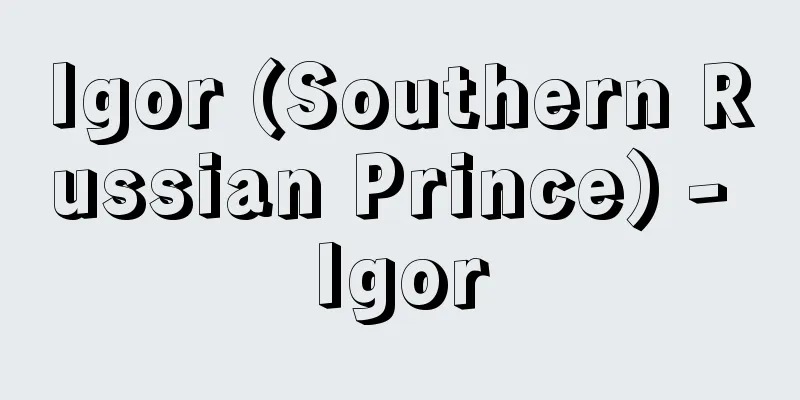Yukio Mishima

|
Novelist. His real name was Hiraoka Kimitake. He was born on January 14, 1925 in Yotsuya, Tokyo (now Shinjuku Ward), as the eldest son of his father Azusa and mother Shizue Yamato. His age corresponds to the years of the Showa era, which also shows his connection to the times. He entered Gakushuin Elementary School in 1931 (Showa 6) and studied there until his senior high school. He began publishing novels in his early teens, and in 1944 published a collection of novels called Hanazakari no Mori (Flowering Forest). He learned of the traditions of Japanese literature through his teacher Shimizu Fumio, and was indirectly influenced by the Japanese romantic school. In 1944, he entered the Faculty of Law at Tokyo Imperial University, and the following year he learned of Japan's defeat while working at a factory where he was mobilized. It is assumed that Mishima's relationship with the war was in harmony with the times, as his sympathy with the beauty of annihilation that the lonely boy dreamed of. In 1946, on the recommendation of Yasunari Kawabata, he published the short story Tobacco (Tobacco), which was recognized as a precocious newcomer, and established his position as a writer with the novel Confessions of a Mask (Confessions of a Mask) (1949). Mishima's writing style during this period was not in sync with the trend to establish democracy, and aimed to create magnificent beauty, but at its root was nihilism, which connected him to his readers of the time. He subsequently published Thirst for Love (1950) and Age of Blue (same publisher), but after a visit to Greece in 1952, he became sympathetic to "external symmetry" and Greek health, which bore fruit in The Sound of Waves (1954), and his writing style also began to value intellectual symmetry. The novel The Temple of the Golden Pavilion (1956) marks the peak of this period. Later, in "Kagami's House" (1959), he took stock of the postwar era in the form of a novel. In 1960, the year after the Security Treaty, he wrote a short story, "Patriotism," depicting the young officers who took part in the February 26th Incident (this work was later adapted into a film in the form of Noh in 1965, in which he produced, adapted, directed, and starred in it himself). After that, his interest in the Showa period intensified, and he published the critical essay "On Hayashi Fusao" (1963), which led to "Voices of the Heroic Spirits" (1966). Mishima also showed great talent as a playwright, publishing works such as "Modern Noh Plays" (published in 1956) and "Rokumeikan" (1957), but later produced masterpieces such as "Marquise de Sado" (1965). He also showed great talent in writing new pseudo-classical kabuki plays, such as "The Sardine Seller's Love Net" (1954) and "Chinsetsu Yumiharizuki" (1969), which were well received. He wrote novels such as "After the Banquet" (1960) and "Silk and Insight" (1964), but in the latter half of the 1960s he began to advocate "both literary and martial arts," and his practice began to take place in the field of "martial arts" as opposed to "literature." That is, he enlisted in the Self-Defense Forces as a trial soldier and formed the "Tate no Kai" (Shield Society). During this period he continued to write his last novel, "Hojo no Umi" (The Sea of Abundance) (4 volumes, completed in 1970), but on the morning of November 25, 1970 (Showa 45), he went to the Self-Defense Forces' Ichigaya Garrison with Morita Hisakatsu and three other students from the "Tate no Kai" (Shield Society) and called for a revolt, but when this was not achieved, he committed seppuku (disembowelment) in the superintendent's office. Mishima's thought and literature, which were rooted in both a sense of style based on Western intellect and Showa-era nationalism, are thought to have bet on the latter nationalism in his later years as an antithesis to postwar society. [Koichi Isoda] "The Complete Works of Mishima Yukio, 35 volumes and supplementary volume 1 (1973-1976, Shinchosha)" ▽ "The Aesthetics of Martyrdom, by Isoda Koichi (1964, Fuyukisha)" ▽ "The World of Mishima Yukio, by Noguchi Takehiko (1968, Kodansha)" ▽ "Biography of Mishima Yukio, by Saeki Shoichi (1978, Shinchosha)" ▽ "Series of Materials on Japanese Literature: Mishima Yukio" (1971, Yuseido Publishing)" ▽ "Dictionary of Mishima Yukio" (1976, Meiji Shoin) ▽ "Shincho Japanese Literature Album: Mishima Yukio" (1983, Shinchosha) [References] | | | | | |Source: Shogakukan Encyclopedia Nipponica About Encyclopedia Nipponica Information | Legend |
|
小説家。本名平岡公威(きみたけ)。父梓(あずさ)と母倭文重(しずえ)の長男として大正14年1月14日東京四谷(現、新宿区)に生まれる。満年齢が昭和の年数と一致するという点にも時代との関係がみられる。1931年(昭和6)学習院初等科に入り、高等科まで学習院で学ぶ。10代前半から小説を発表し、1944年、小説集『花ざかりの森』を刊行した。恩師清水文雄を通じて国文学の伝統を知り、日本浪曼(ろうまん)派の間接的な影響を受けていた。1944年、東京帝国大学法学部に入学、翌年勤労動員先の工場で日本の敗戦を知る。戦争と三島との関係は、孤独な少年の夢みた滅亡の美への共感が、時代と協和音を奏でていたものと想定される。1946年(昭和21)川端康成(やすなり)の推薦で短編『煙草(たばこ)』を発表、早熟の新人として認められ、長編『仮面の告白』(1949)で作家としての地位を確立した。この時代の三島の作風は、民主主義の確立を目ざす動向に同調せず、華麗な美の創造を目ざしたが、その根底にはニヒリズムがあって、それが同時代の読者とのきずなになっていた。続いて『愛の渇(かわ)き』(1950)、『青の時代』(同)を発表したが、1952年のギリシア訪問の影響で「外面の均斉」とギリシア的健康に共感し、これが『潮騒(しおさい)』(1954)に結実するとともに、作風も知的均斉を重んじるようになる。『金閣寺』(1956)はこの時期の頂点を示す小説である。やがて『鏡子の家』(1959)で戦後という時代への決算を小説の形で行う。 1960年安保の翌年、短編『憂国』で二・二六事件の青年将校を描く(この作品はのち1965年に自ら製作・脚色・監督・主演して、能形式により映画化した)。その後、昭和への関心が強まり、評論『林房雄論』(1963)を通って『英霊の声』(1966)に至る。三島は劇作家としても優れた才能を示し、『近代能楽集』(1956刊)、『鹿鳴館(ろくめいかん)』(1957)などを出していたが、その後『サド侯爵夫人』(1965)のような秀作もある。また擬古典的な歌舞伎(かぶき)劇の新作にも優れた才能を示し、『鰯売恋曳網(いわしうりこいのひきあみ)』(1954)、『椿説弓張月(ちんせつゆみはりづき)』(1969)などは好評を博した。小説は『宴(うたげ)のあと』(1960)、『絹と明察』(1964)などがあったが、1960年代の後半に至って「文武両道」を唱えるようになると、「文」に対立する「武」の領域に実践が現れた。すなわち自衛隊に体験入隊し、「楯(たて)の会」を結成する。この時期に最後の長編『豊饒(ほうじょう)の海』(全4巻、1970年完結)を書き続けたが、1970年(昭和45)11月25日午前、「楯の会」の学生森田必勝ほか3名とともに自衛隊市ヶ谷駐屯地に至り、決起を呼びかけたが果たさず、総監室で割腹自殺した。西欧的な知性に基づく様式感覚と昭和のナショナリズムとの両者に根ざしている三島の思想と文学は、晩年には戦後社会へのアンチテーゼとして後者のナショナリズムに賭(か)けたとみられる。 [磯田光一] 『『三島由紀夫全集』35巻・補巻1(1973~1976・新潮社)』▽『磯田光一著『殉教の美学』(1964・冬樹社)』▽『野口武彦著『三島由紀夫の世界』(1968・講談社)』▽『佐伯彰一著『評伝三島由紀夫』(1978・新潮社)』▽『『日本文学研究資料叢書 三島由紀夫』(1971・有精堂出版)』▽『『三島由紀夫事典』(1976・明治書院)』▽『『新潮日本文学アルバム 三島由紀夫』(1983・新潮社)』 [参照項目] | | | | | |出典 小学館 日本大百科全書(ニッポニカ)日本大百科全書(ニッポニカ)について 情報 | 凡例 |
Recommend
Cow horn shell - Cow horn shell
...The shell is beautiful and is used in shell cr...
Larsson, C.
...These include Martin Szanzer, who wrote the mu...
simple closed curve
…When t ≠ t ′ and ( f ( t ), g ( t )), ( f ( t ′)...
Yalu River - Oryukko
The largest river in Korea, it flows along the bo...
Szymanowska, MA (English spelling)
...Fryderyk Chopin, who wrote folk-like and innov...
Ellipsoid - Daenmen (English spelling)
A quadratic surface. In the Cartesian coordinate s...
MK magnet steel
A precipitation hardening magnet steel invented by...
Guillaume d'Aquitaine (English spelling) Guillaume ed Aquitaine
…He was a medieval French prince and poet. He was...
Daedalus - Daidalos (English spelling)
An exceptional craftsman who appears in Greek myt...
Oshashi
… In the Nara and Heian periods, it was customary...
Trebizond
...Population: 145,000 (1994). Also known as Treb...
The strange king
…His pen name was Si Yin. His other name was Qi Z...
Koenigswald, GHRvon (English spelling) KoenigswaldGHRvon
...German-born paleontologist and anthropologist....
Mariachi - Mariachi (English spelling) mariachi Spanish
A type of Mexican ensemble. Originally a folk ens...
Photochemical cell - koukagakudenchi
A battery that uses a photochemical reaction. In 1...

![Otowa [town] - Otowa](/upload/images/67cb2028d86b7.webp)







